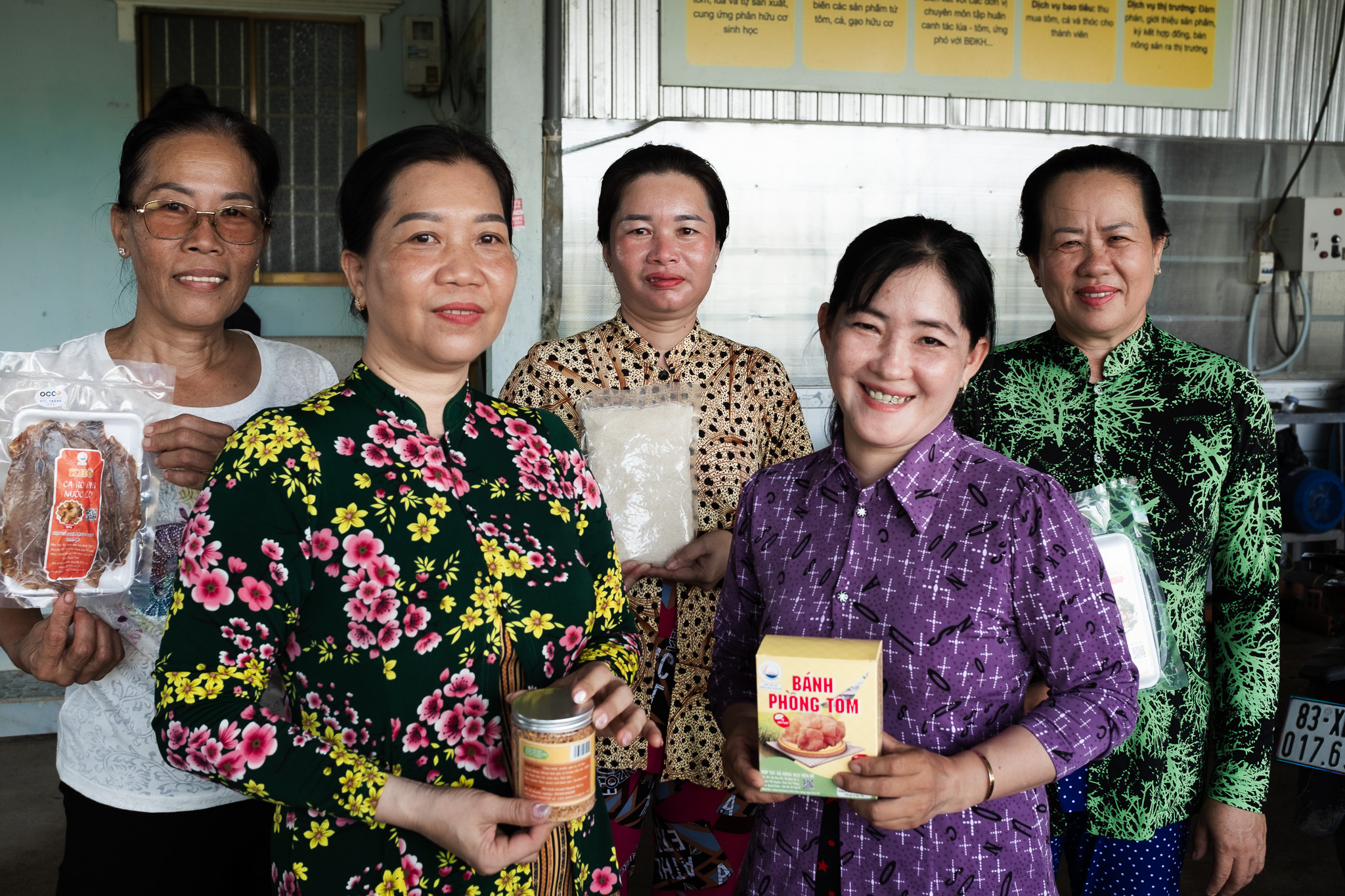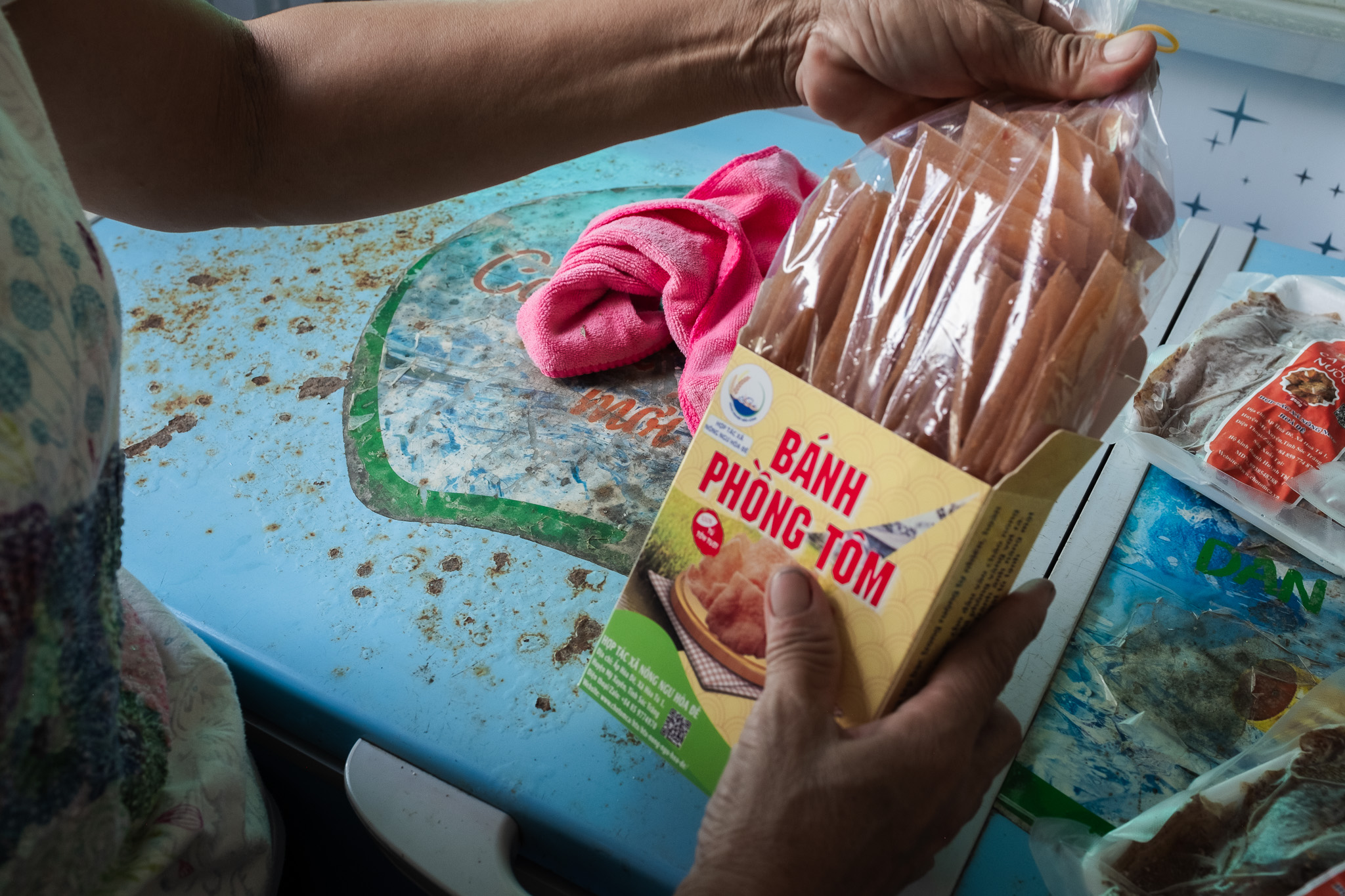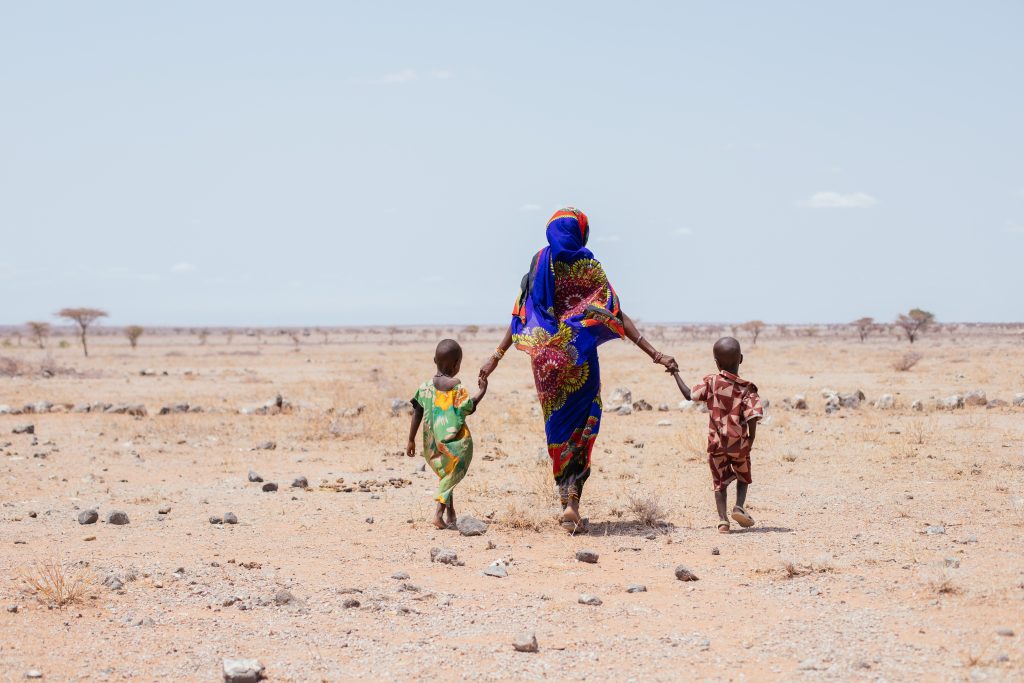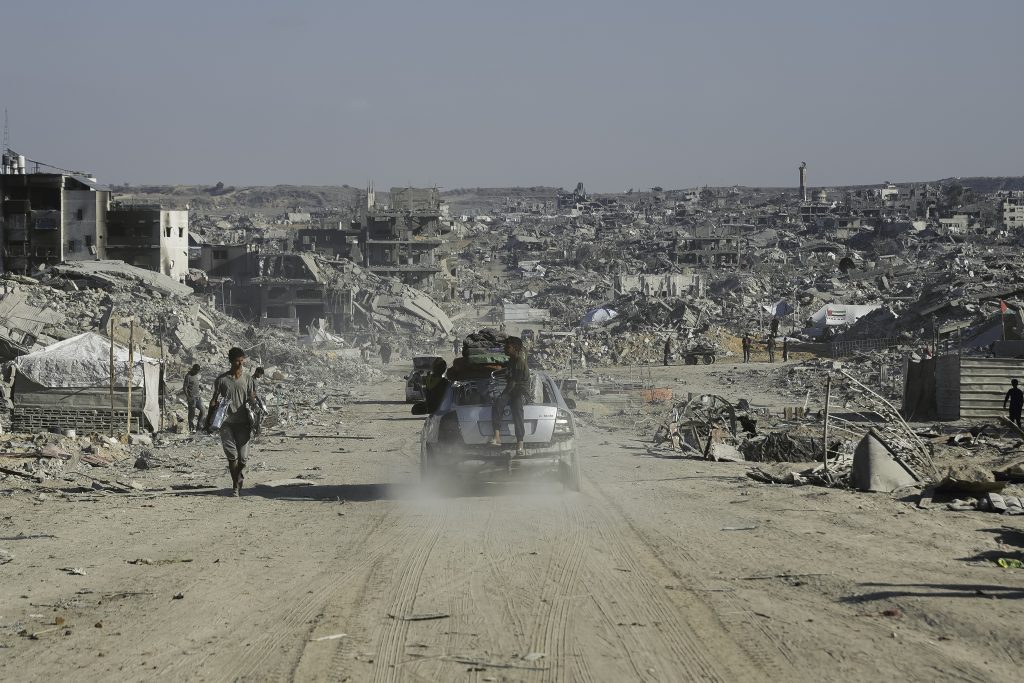Women Farmers in Vietnam Are Driving Climate-Smart Solutions
Can Tho, Mekong Delta area, Vietnam.
Lush greenery towers over the narrow dirt road. On each side are homes overlooking small ponds. The sun is finally shining after a night of exceptionally strong monsoon rains. After winding our way through these roads, we arrive at our destination for the morning by motorbike – the best way to get around this deep in the countryside.
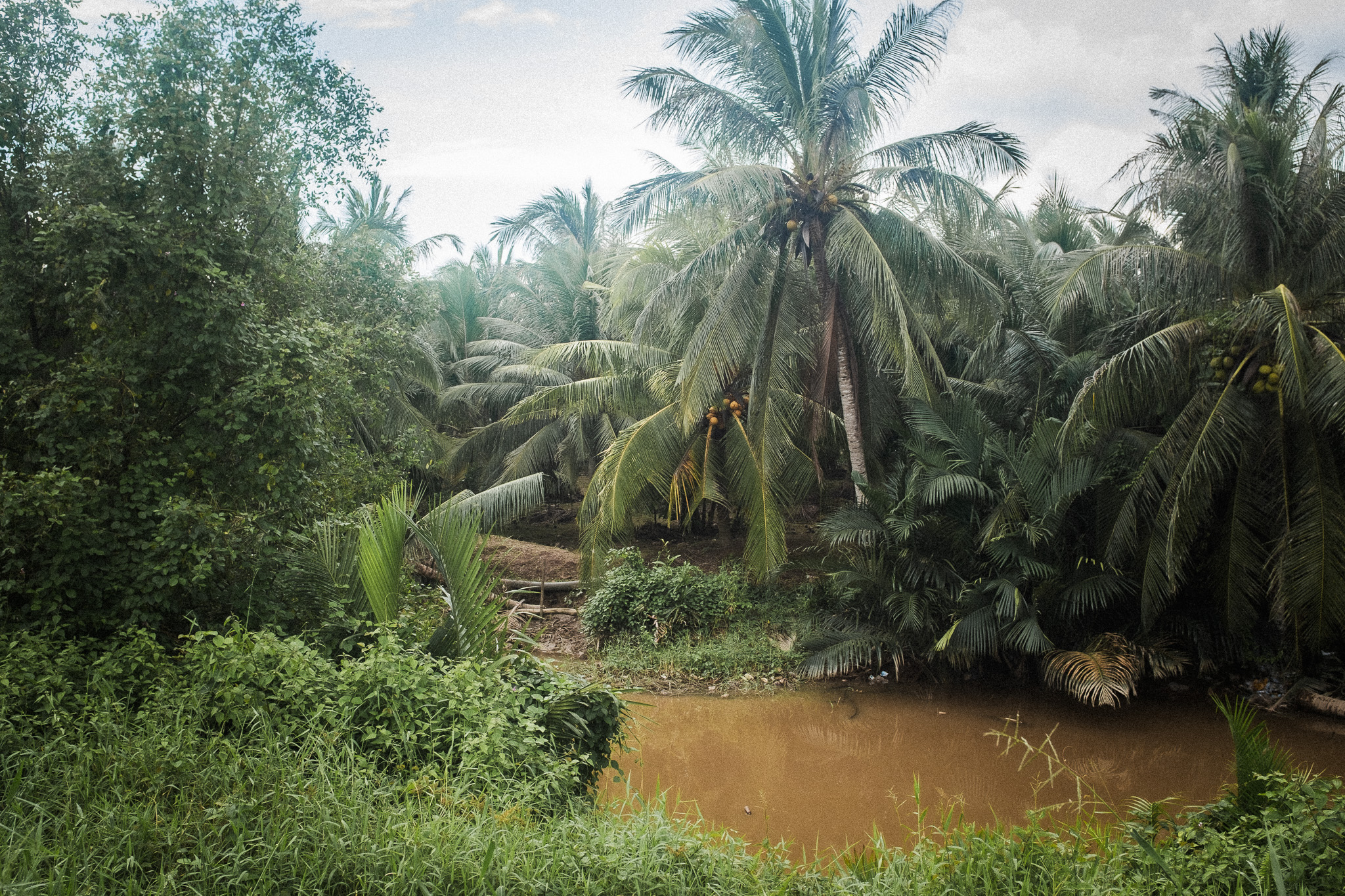
A seemingly banal-looking building is nothing but. This is the home of the Hoa De cooperative. It is a farmers’ union supported by Oxfam and they are especially proud to show us around their work focused on safe rice and shrimp farming, social welfare, and gender equality.
Rice and shrimp play an important role in Vietnam’s economy. Vietnam is the world’s third-largest rice exporter, and its shrimp is exported to 100 countries. These sectors employ over 10 million small producers and workers, primarily in production and processing. However, these small producers and workers face significant exclusion and inequality, particularly regarding unequal labour rights and exclusion from social protection mechanisms such as employer-backed health insurance.
As we gather inside to hear their stories, Miss Lee, one of the female farmers taking part in the cooperative, shares, “In the past, I was too scared to speak or even hold a microphone. Now, because of this support, I can stand with confidence, raise my voice, and help other women do the same.”
The objective of this project is straightforward: to reduce poverty in the region. This is achieved by building the capacity of local farmers, ensuring occupational safety, sharing tips on market success in an industry heavily impacted by climate change, and supporting women’s rights by increasing the number of female farmers in the area.
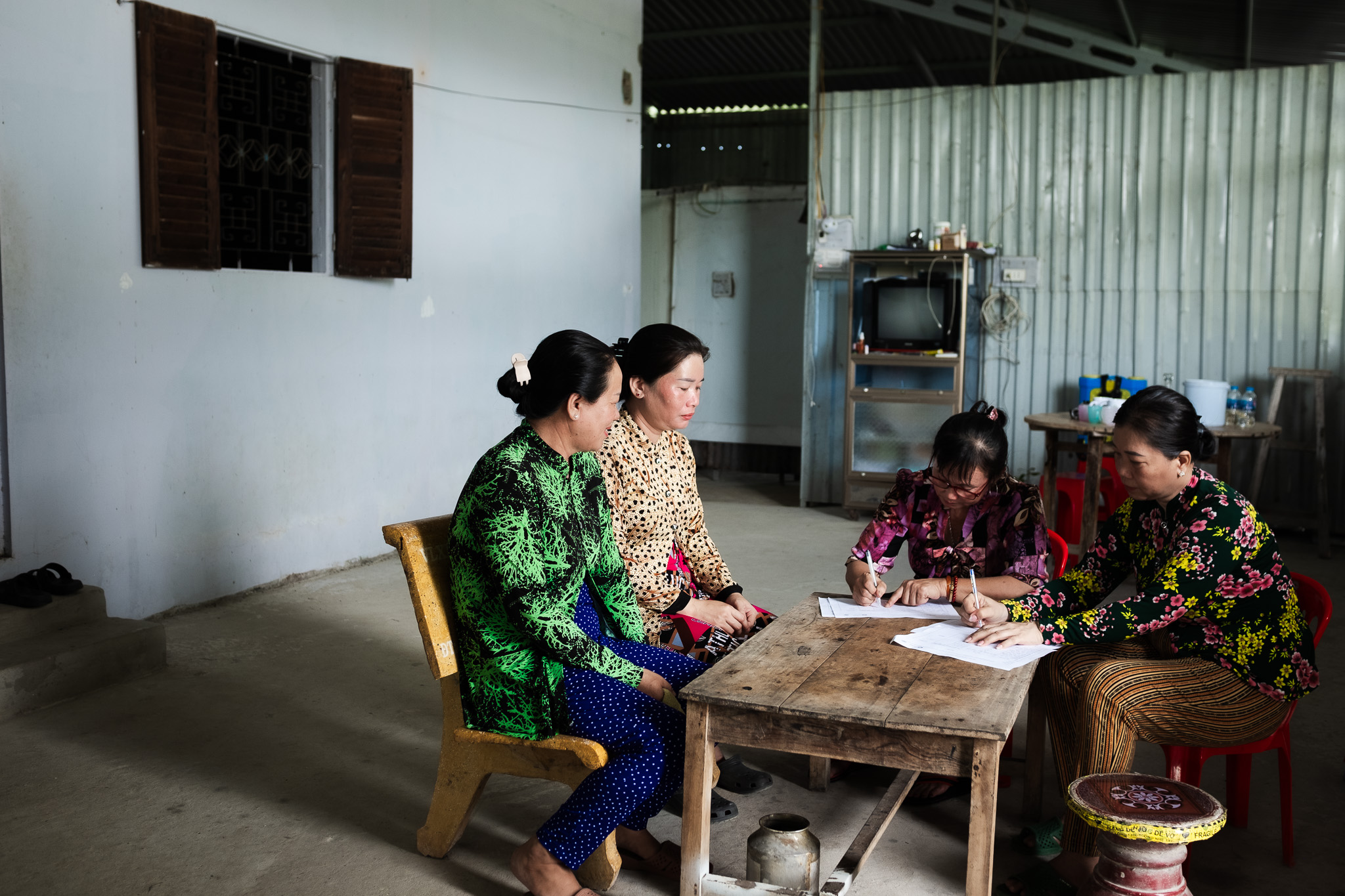
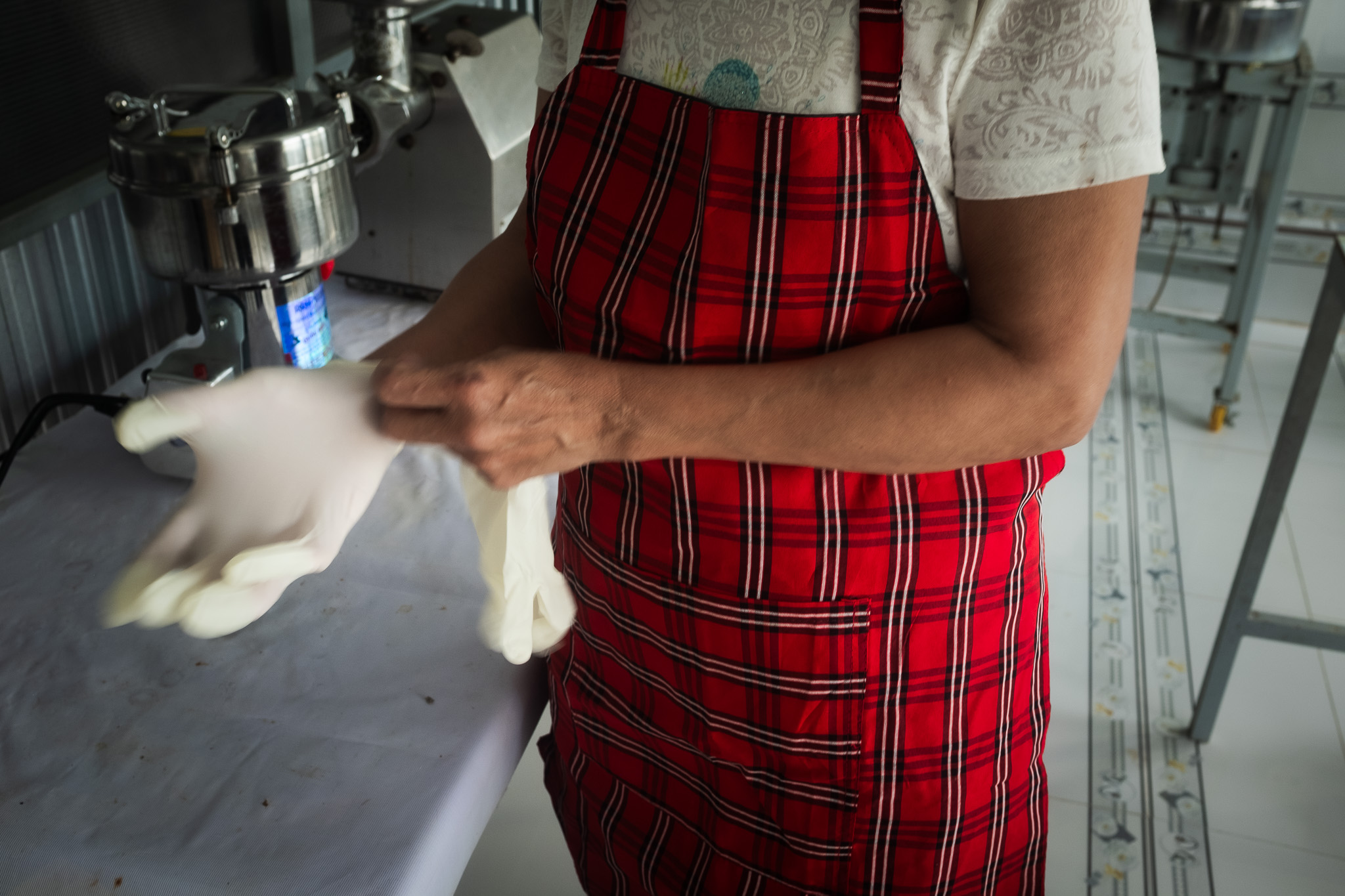
Prior to the group’s involvement in the project, the cooperative counted 17 farmer members, including only a few women. Today, there are 50 members, 33 of them women. In the past, many women were held back because they weren’t able to operate heavy tools or even ride motorbikes to get to the fields. But with proper training and licensing, women are now confidently biking to work and using the full range of farming tools. The result? Higher earnings and, more importantly, greater agency over their own livelihoods.
This farmers’ cooperative is one of many in the Mekong Delta region working with Oxfam to have access to proper labour and social protection. Since the launch of the project in 2022, over 25,000 workers in rice and shrimp production have honed their farming skills and accessed social protection measures like health insurance.
BACK TO BASICS FOR CLIMATE RESILIENCY
Yet strengthening skills and protections is only part of the story. To survive in a region increasingly shaped by rising seas and unpredictable rains, farmers here have also had to rethink how they work with the land.
“All this training helps,” one farmer tells us as she walks us toward the ponds, “but climate change means we also have to change how we farm.” She points to bunches of bananas sitting in a basket by the water. “This,” she says with a smile, “is how we catch shrimp now.”
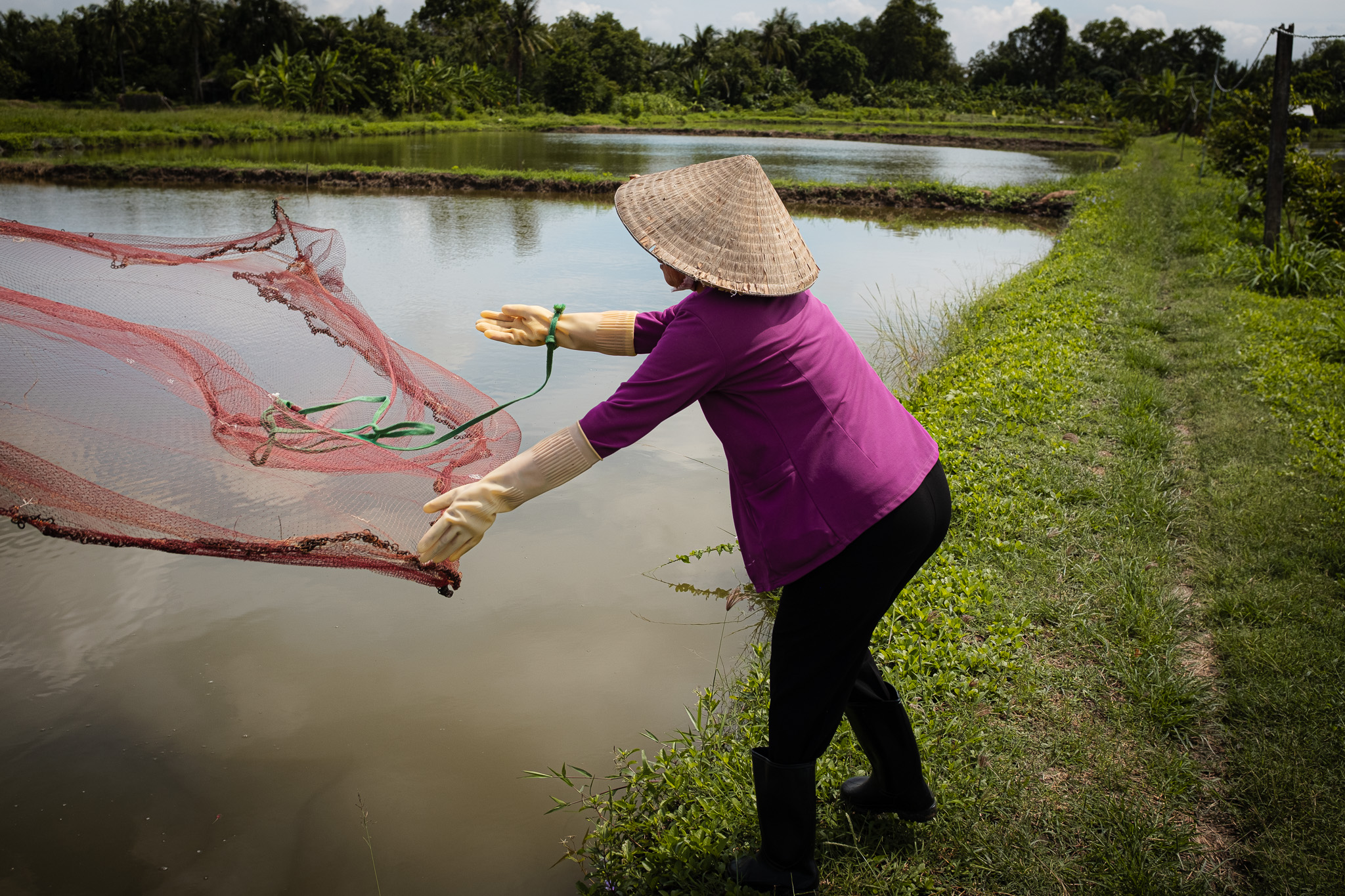
Taking a cue from their surroundings, the women of the Hoa De cooperative are piloting the use of bananas they grow themselves on the farm as bait. She places a bunch of peeled bananas inside a fishing basket and carefully lowers it into the water. Instantly, sugar attracts the crustaceans resulting in a quick catch of the day.
By relying on organic bait, they can grow on their own land, farmers cut their dependence on costly, chemical-based feed and reduce the environmental footprint of their ponds. In a region where rising salinity and erratic weather threaten both rice paddies and shrimp yields, having a low-cost, homegrown method like this means more stable incomes, healthier ecosystems, and a farming system that can adapt as climate crises become more and more recurring.
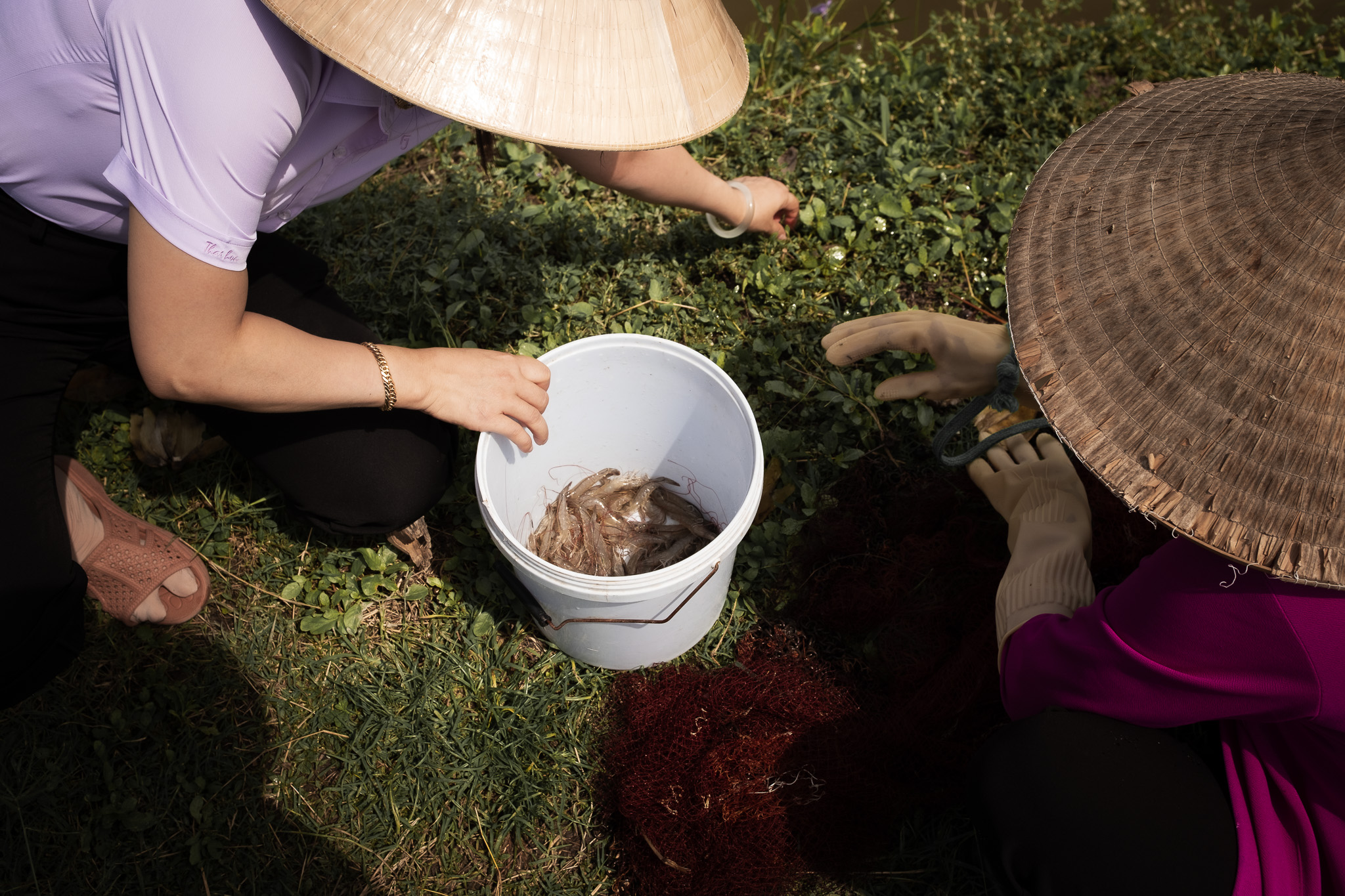
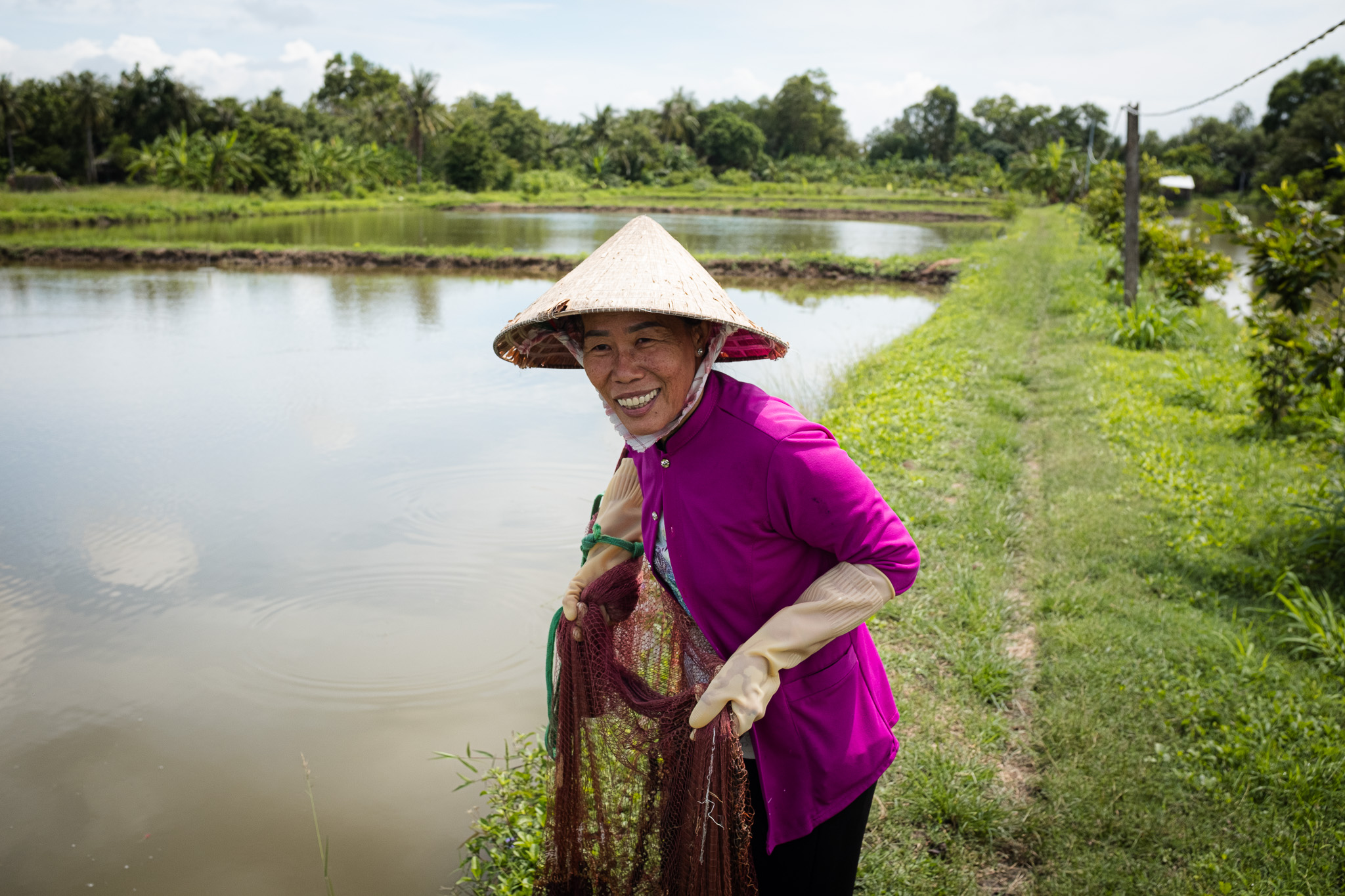
Even though these farmers find clever ways to protect their livelihoods, the reality is stark: they contribute almost nothing to the emissions that are fueling the floods threatening their fields.
The climate crisis is being driven by inequality, with the wealthiest polluters burning through the planet’s future while communities like the Hoa De cooperative face the consequences first. Supporting small-scale farmers is about climate justice and giving frontline communities the tools to survive a warming world.
WOMEN LEADING THE WAY FORWARD
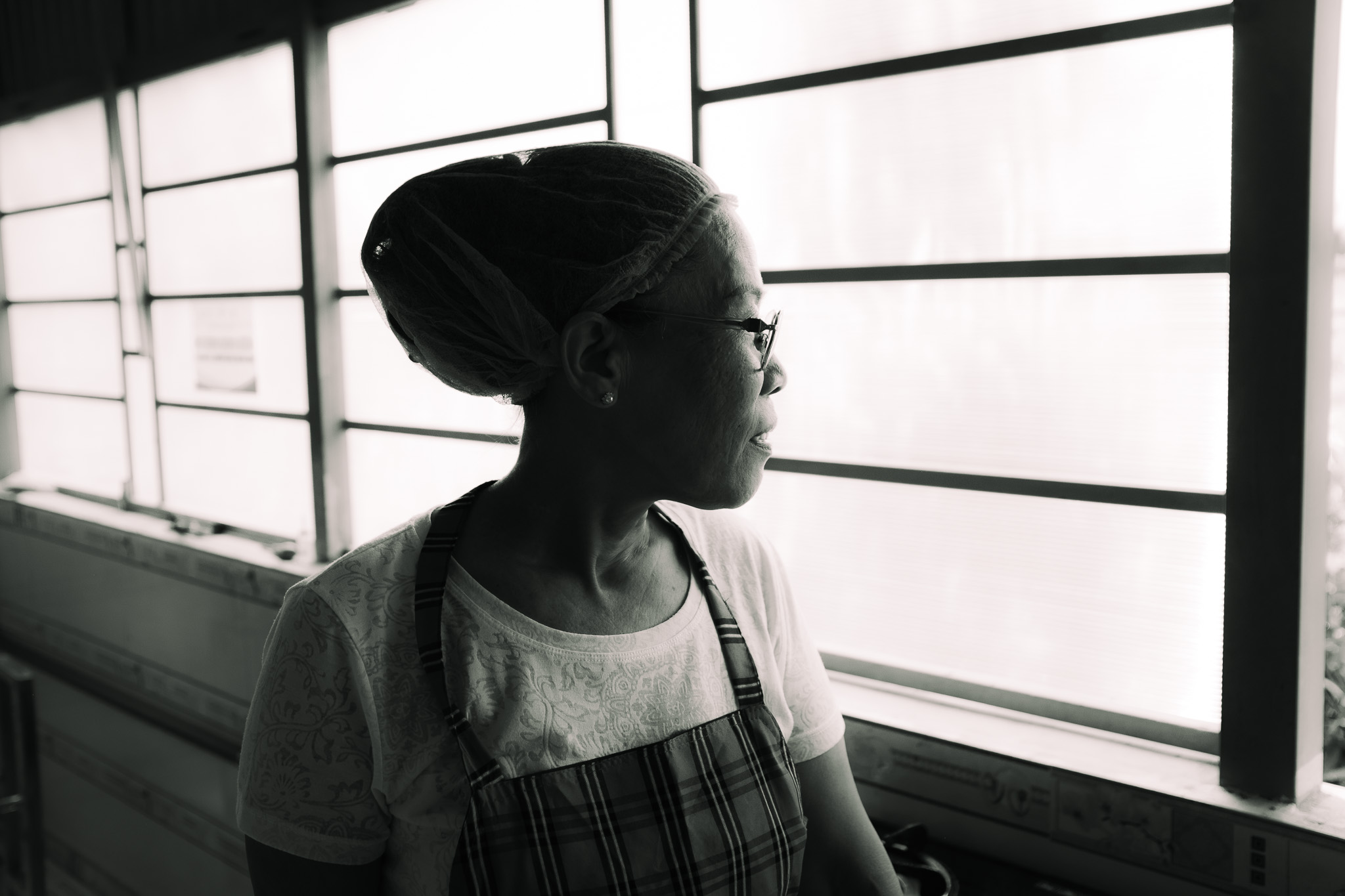
Back inside the main building, two women put on the protective gear provided by the project - rubber boots, masks, and gloves - to transform baskets of shrimp into the cooperative storefront’s most sought-after products. Daily catch becomes snacks, spices, and frozen meals popular far beyond these ponds.
“Before, I worked alone and hoped for the best,” tells me one of the women as she readies the powder grinding machine. “Now we plan together, learn together, and grow stronger together.”
With each step of the transformation process, from fishing to packaging, the women of the Hoa De cooperative are building something to last: better harvests, a stable future, and climate resilience so urgently needed for the storms to come.
